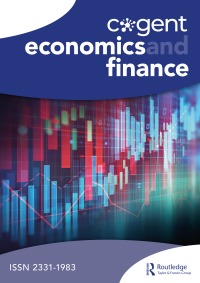We’re excited to share the findings of a recent empirical study titled “Role of governance in attracting foreign direct investment inflow: empirical evidence from South Asia region.” The study, conducted by Mosab I. Tabash, Umar Farooq, Ali Matar, and Mujeeb Saif Mohsen Al-Absy, explores the impact of governance quality on foreign direct investment (FDI) inflow in South Asian economies.
Foreign direct investment plays a crucial role in economic growth, job creation, and technology transfer. Understanding the factors that attract FDI is vital for policymakers and investors. This study specifically focuses on the governance quality of host countries and its influence on FDI inflow.
By analyzing financial statistics from eight South Asian economies over a 20-year period (2000-2019), the researchers employed FMOLS and DOLS models to estimate the long-term coefficients.
The empirical analysis discloses the positive significant role of the aggregate governance index on FDI inflow, implying that better governance can uplift the inflow of FDI. In addition, the empirical results disclose the negative impact of the inflation rate, while the significant positive impact of trade volume, population growth, labor force, and financial development on FDI inflow.
The study’s recommendations highlight the importance of focusing on improving governance to attract more FDI. Enhancing governance standards, such as political stability and reducing corruption, can contribute to economic growth and regional development. The findings of this study have broader policy implications for developing economies worldwide.
Foreign direct investment plays a crucial role in the economic development of nations, and understanding the factors that attract FDI is vital for policymakers and investors. This study provides valuable insights into the relationship between governance and FDI inflow, shedding light on the significance of governance quality in shaping investment patterns.
For more details and a comprehensive understanding of the study, you can access the full article through the provided DOI link: DOI: 10.1080/23322039.2024.2358930.
The research article was published in Cogent Economics & Finance. it is indexed by Scopus (Citation Metrics, 1.9 & Impact Factor, 2.3). Further, the journal is indexed by Emerging Sources Citation Index and other metrics





